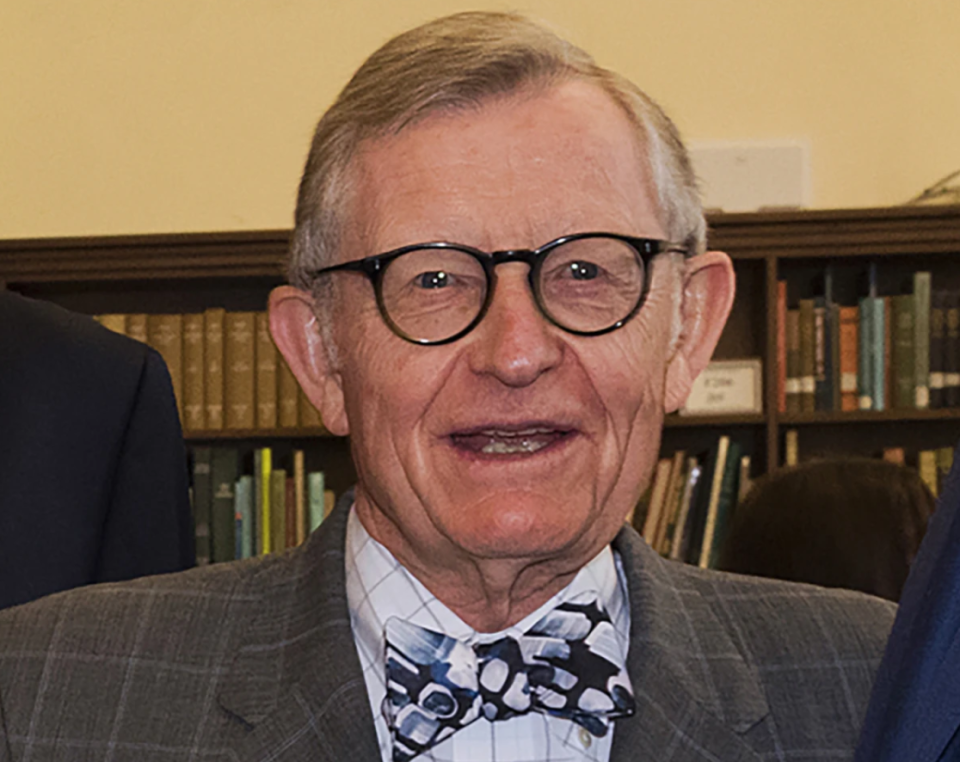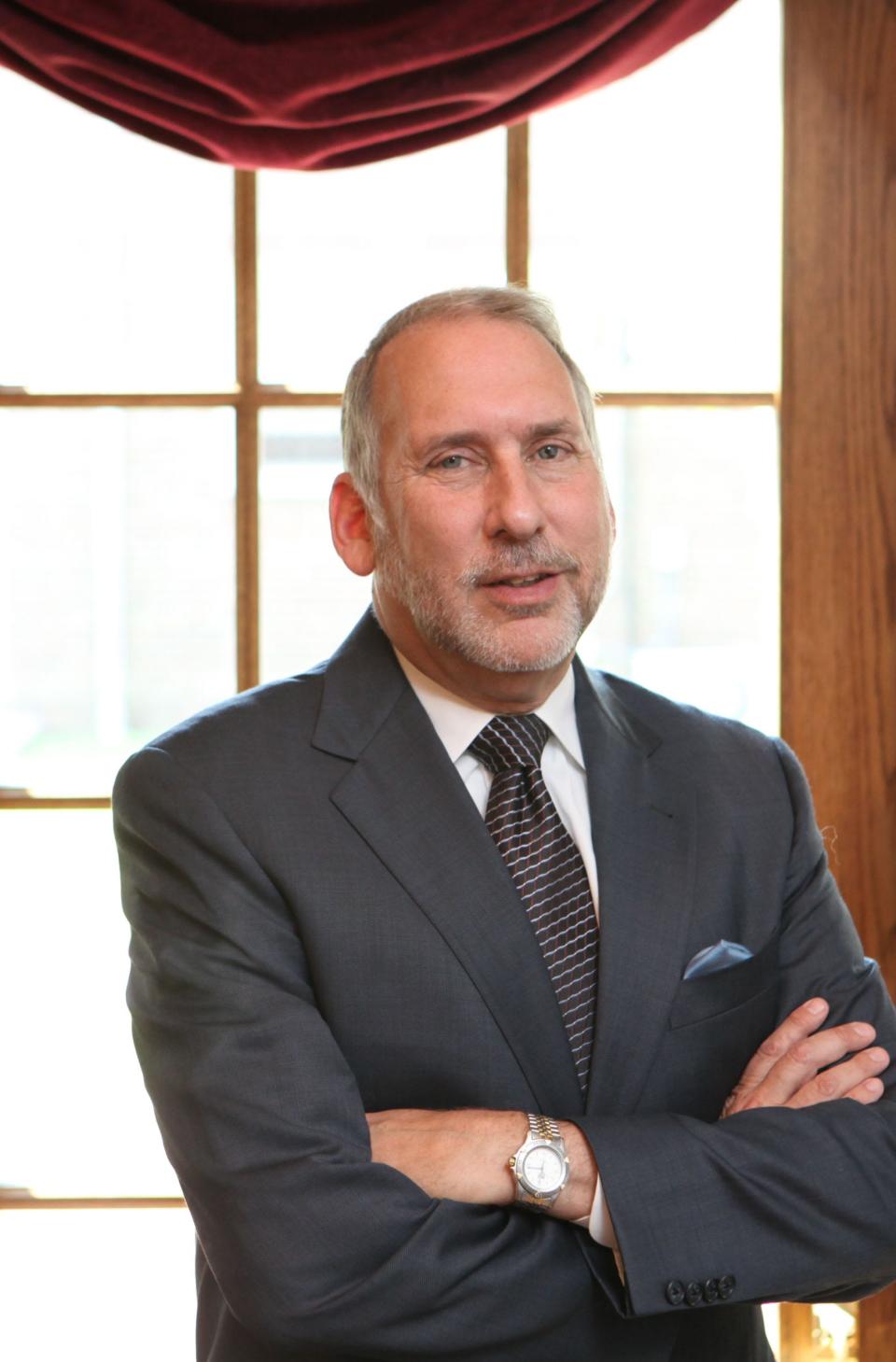Vocationalism cannot trump the power of the liberal arts in US higher education
- Oops!Something went wrong.Please try again later.
Some college presidents and chancellors are media stars. They lead big schools, appear on television, are quotable and raise prodigious amounts of money. They have prominent football and basketball teams. President Elwood Gordon Gee of West Virginia University is a star. I’m not.
Gee, who is 79, is a serial president. He led WVU from 1981 to 1985, followed by tenures as president at the University of Colorado, Brown University and Vanderbilt University and two at Ohio State University, and returned to WVU in 2014. Gee has asserted in one of his books that land-grant universities like WVU are meant to “prioritize their activities based on the needs of the communities they were designed to serve.”

On the other hand, there are college presidents who are nobodies like me. I lead a small, private graduate-level college. Nobody wants to see me on television. The only times I get quoted are via footnotes by other people who work in my areas of scholarship. I’m lucky if I can raise enough money for an endowed lectureship. As far as big-time sports, my school has intramural corn hole.
Why do we allow the liberal arts to be attacked?
“We must focus on market-driven majors, create areas of excellence, and be highly relevant to our students and their families,” Gee said. In August 2023, WVU announced that it would cut or restructure 32 programs and lay off 169 faculty members. On the chopping block were undergraduate majors in music, art and multiple foreign languages; master's programs in acting, landscape architecture and creative writing; and doctoral programs in mathematics, management, higher education, and occupational-health and environmental-health sciences. After a review process, Spanish, Chinese and the creative writing programs were restored. Gee says WVU needs to “tailor relevant academic content to specific market needs.” These market needs include responding to the pressures placed by state legislatures upon public universities, budgetary constraints and the workforce needs of local employers.
West Virginia’s population is declining. Opiates have ravaged the state. Large parts of the economy remain dependent on coal mining. Measures of population health are poor. It has the lowest bachelor’s-degree-level-educated percentage of the population of the 50 states. Its state universities have an uphill struggle. I may be a nobody in the world of higher education leadership, but I know there is an alternative response to throwing in the towel on a liberal arts education and joining the race to the bottom. I know the definition of a spayed college president or chancellor: someone unwilling to quit or be fired over a matter of principle. The principle at stake here is the purpose of a university. A president ought to be willing to quit or be fired over that principle.
In his magisterial book "The Idea of a University," Cardinal John Henry Newman, 1801-1890, wrote that if “a practical end must be assigned to a University course … it is that of training good members of society … It is the education which gives a [person] a clear, concise view of their own opinions and judgments, a truth in developing them, an eloquence in expressing them, and a force in urging them. It teaches [a person] to see things as they are, go right to the point, to disentangle a skein of thought to detect what is sophistical and to discard what is irrelevant.”
Thomas Jefferson viewed education as essential to a democracy. In "Notes on the State of Virginia," he recommended public education “to diffuse knowledge more generally through the mass of the people,” to create informed citizens, and to put the power of knowledge in the hands of the people rather than an inherited aristocracy.
More perspective: Parents, politicians don't decide college curriculums. Trust universities to do their jobs.
Vocationalism misses the point of American education
We should not fall prey to vocationalism: the idea that the sole purpose of a university is to make people “job-ready” for local corporations. Vocationalism misses a key part of the purpose of land-grant universities, much less the university enterprise in general. In the original act of Congress that created land-grant universities, we find language promoting the liberal arts and stating that the curriculum should be designed “without excluding other scientific and classical studies … to teach such branches of learning as are related to agriculture and the mechanic arts … in order to promote the liberal and practical education of the industrial classes in the several pursuits and professions in life.”
The curse of a sole focus on vocationalism comes as a reaction to corporate leaders and their willing collaborators in state legislatures who think it is either difficult or impractical to interest students in the liberal arts or, heaven forbid, that it might make them into informed voters.
As Robert Maynard Hutchins wrote, "The whole apparatus of football, fraternities, and fun is a means by which education is made palatable to those who have no business in it."
Hutchins knew “that the best practical education is the most theoretical one … change on every front is so rapid that what one generation has learned of practical affairs in the realm of politics, industry, business, and technology is of little value to the next … It is principles, and everlastingly principles, not data, not facts, not helpful hints, but principles which the rising generation requires if it is to find its way through the mazes of tomorrow."
Higher education is not solely about bringing home a paycheck. It is about grappling with questions such as “What is a good life? How ought it be lived? What is right?”
As Hutchins pointed out, to live life is, by definition, to be a liberal artist, so the only question before us is whether we shall be a good or bad one. I may be a nobody in higher education, but I know that I want to educate students to be good liberal artists, informed citizens and capable of changing with changing times. I think the somebodies in higher education should believe that also.
Edward C. Halperin, M.D., M.A., teaches history of medicine at New York Medical College, where he is also chancellor and CEO. This essay represents his opinion and not that of the college.

This article originally appeared on NorthJersey.com: US higher education's infatuation with vocationalism is dangerous

